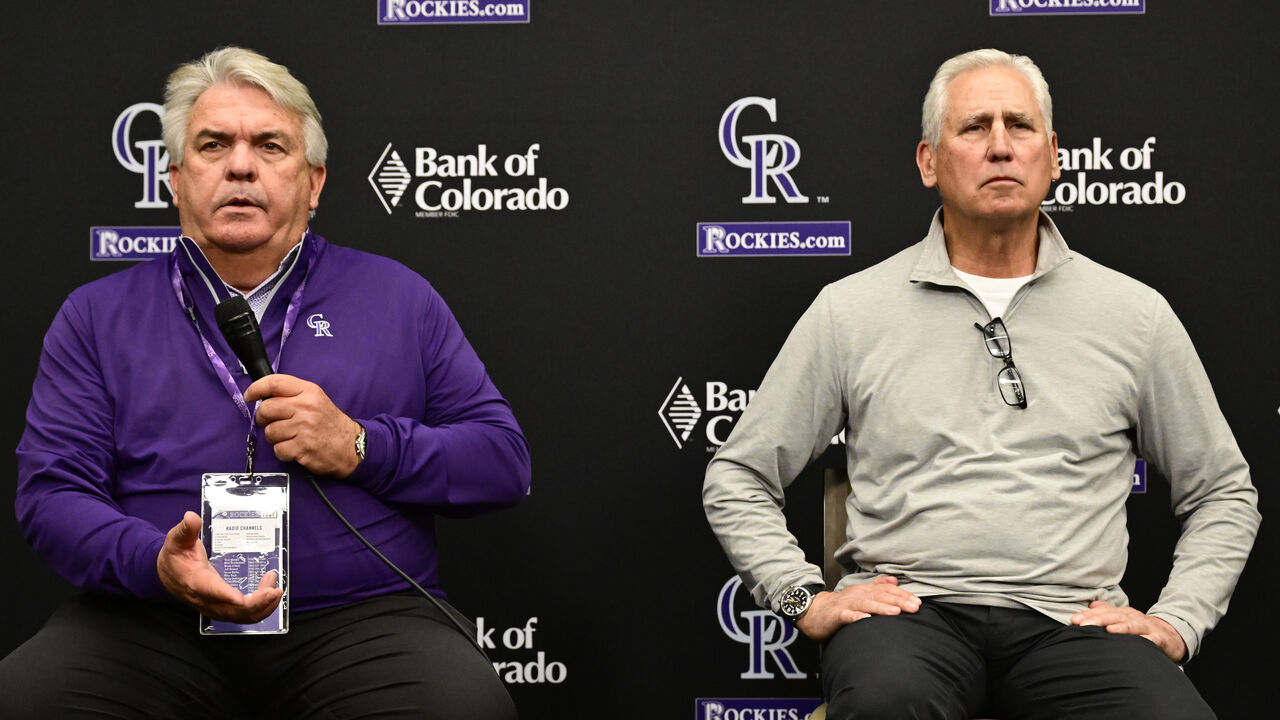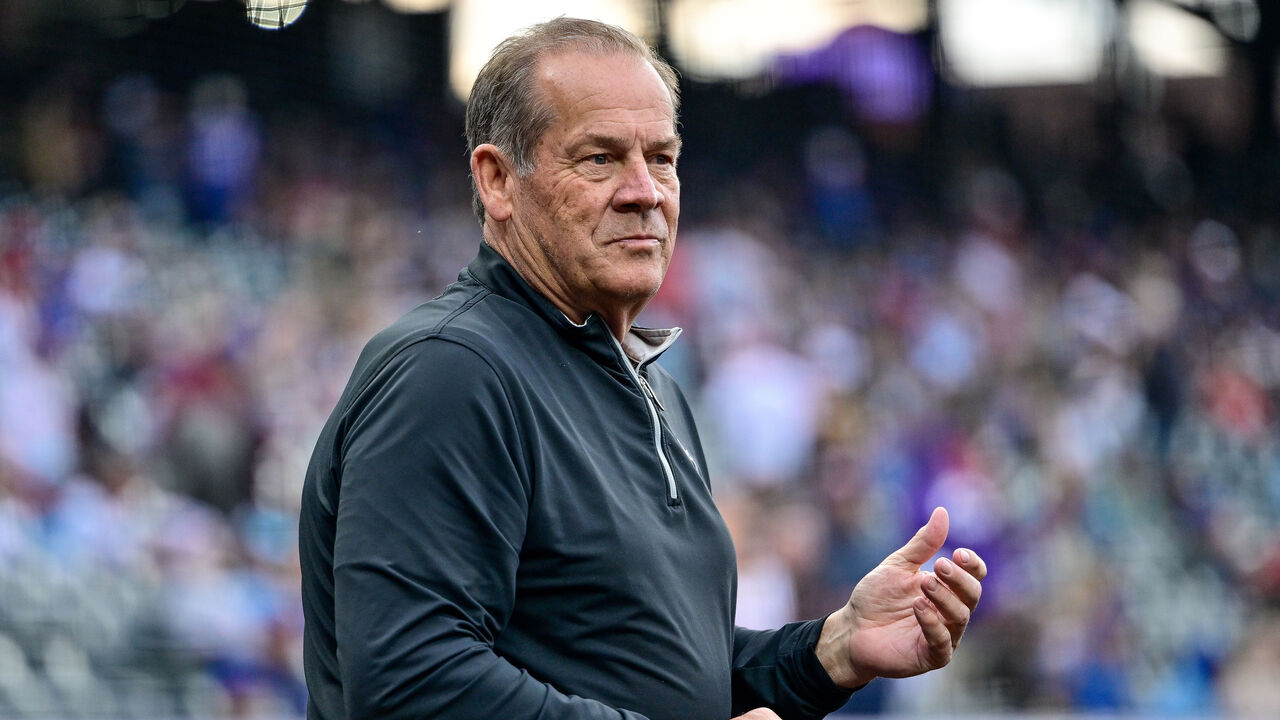It's not Bud Black's fault the Rockies are miles behind
The Colorado Rockies are bad. Really bad.
Each MLB season, a few teams reach or exceed 100 losses - at least three every year since 2018 (minus the pandemic-shortened campaign). Such is the nature of a sport where some franchises are out of contention before the schedule begins because of the game's inherent imbalances.
But the Rockies are playing at an even lower level. Their 7-33 record is historically awful baseball.
A year after the Chicago White Sox lost a record 121 games, the Rockies are tracking to be even worse. It took 62 years for the White Sox to set a new modern-era record for futility, and the Rockies seem intent on challenging that mark immediately.
Perhaps that speaks to a growing gap between the best and worst organizations in baseball ... or maybe it just says a lot about the Rockies.
As struggling teams often do, the Rockies fired their manager, Bud Black, on Sunday. They made this move even though Rockies general manager Bill Schmidt had given Black a vote of confidence the day before.
Just about everyone saw through the scapegoating effort.
"I don't think Casey Stengel could change the outcome of that ballclub," Dodgers manager Dave Roberts said. "That's not the manager's fault."

Colorado is on pace to lose 134 games. Last season's White Sox posted a winning percentage of .253; the Rockies are at .175. It's not the product of small-sample bad luck, either.
It's so bad that Rockies veteran pitcher Kyle Freeland asked fans to "keep believing in us" during a postgame news conference Thursday after he gave up 11 hits and nine runs - five earned - in three innings at home to the Tigers. He had to excuse himself from the podium after he was overcome with emotion.
While Roberts was sticking up for a friend in Black (someone he coached under in San Diego), firing managers is generally a public-relations transaction that has little effect on outcomes on the field.
Bill James created the sabermetric concept of "win shares" to assess players' contributions to the team's record. If someone created "blame shares," a manager would almost always have a smaller slice of responsibility than the GM and, ultimately, the club owner.
But since GMs don't fire themselves and owners rarely sell teams just for losing games, the most convenient public-facing official to remove is the manager.
The Rockies' failures, however, are not tied to a manager. They are deep-rooted and systemic, and there are no easy fixes.
The real issue is at the top.
Dick Monfort has been Rockies chairman and CEO since he and his brother took over majority ownership before the 2006 season. Monfort's record is lengthy enough and barren enough to suggest it's extremely unlikely he can lead a baseball club effectively.

Monfort also hasn't built sufficient baseball infrastructure or establish effective leadership groups. For instance, the Dodgers' baseball operations department lists 83 employees. The Rockies? Thirty-three.
Successful baseball teams are almost always assembled through systems that excel in drafting and developing players. In the Moneyball era, the best teams also employ strong data-based scouting and development practices.
The Rockies are widely regarded as laggards in every category one could imagine.
Asked if the Rockies rank last in player-development prowess, one industry official wondered if he could assign a ranking that would be worse than 30th.
"They're probably the single worst organization at player development," he said. "They actually do more harm than good."
Agents often demand larger draft bonuses in order for a client to sign with the Rockies. And while Colorado does make occasional investments in free agency, which some other suspect owners don't, those often flop too, like the Kris Bryant and Ian Desmond signings.
On the analytics front, former Rockies analyst Ethan Moore told me last year the team's small staff was overwhelmed and could not tackle meaningful projects.
"This is maybe a 'me problem,' but I just couldn't believe that a lot of the work the analytics departments were working on was actually helping the team win more games," Moore said. "We're giving them, like, 300 heat maps before every game. How is that helping us win?"
Sitting at his cubicle in Denver during the 2021-22 offseason, he came to a realization: "Just kind of this feeling of, 'This isn't it.'"
He left baseball.
As more data and technology enter the industry, an organization that lags as badly as the Rockies will never catch up.
The Rockies' playoff probability has not exceeded 1% after April 18 since 2019. Their playoff chances are again at zero this year.
When the Cubs and Astros were racking up 100-loss seasons in the 2010s, those clubs were also accumulating high-end prospects in the draft while stewarded by competent leadership groups. The Astros built a cutting-edge player development system. Nothing like that is happening in Colorado.
There's no hope in Denver, and there won't be for some time - with or without Bud Black.
Travis Sawchik is theScore's senior baseball writer.
HEADLINES
- Guerrero's hit leads Blue Jays past Yankees to open huge series
- Watch: Tarik Skubal is flirting with history
- MLB Power Rankings: Picking 1 All-Star representative for each team
- Blue Jays' Springer avoids major injury after taking knee to neck
- Reds' Burns roughed up in 2nd career start after memorable debut